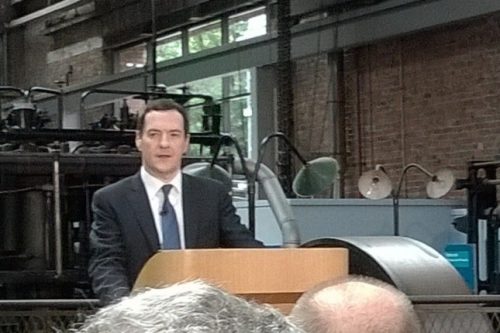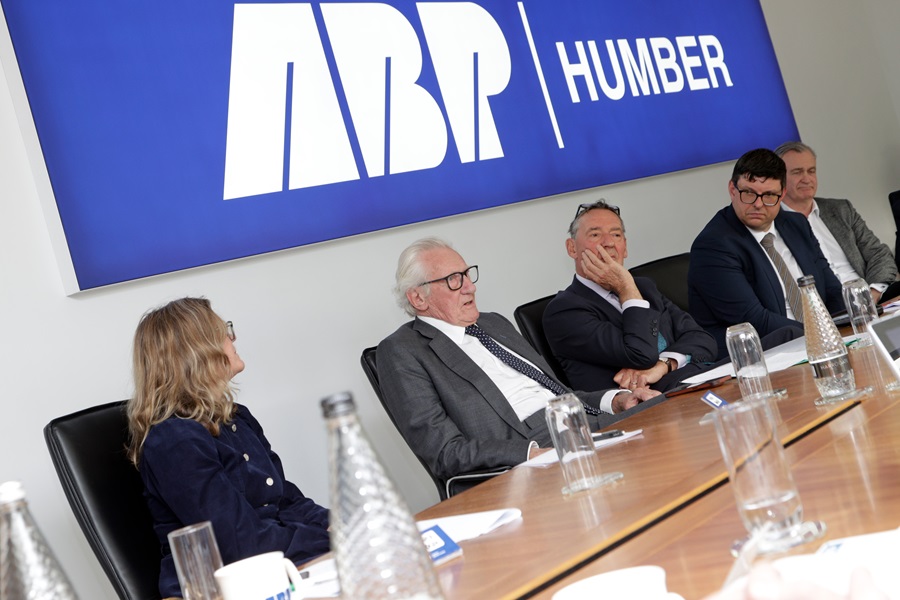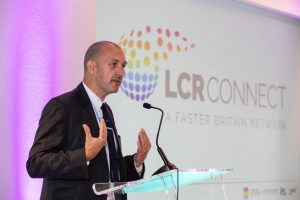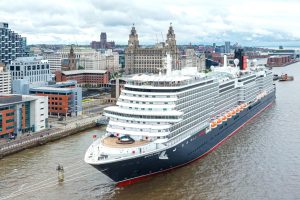Northern Powerhouse marks first 10 years with optimism for the future

The Northern Powerhouse is preparing for the start of its second decade with the confidence on knowing “the argument has been won” and now it is all about delivery.
Chancellor George Osborne gave a landmark speech in Manchester on June 23, 2014, where he set out plans for devolution and major infrastructure investment to create “a Northern Powerhouse”.
In the last 10 years, it has become a politically-controversial phrase, along with “levelling-up” and “red wall”, but the need it spoke to is still relevant.
The ideas that underpinned the first 10 years of the Northern Powerhouse are at the heart of Labour’s manifesto and supported by key people who are expected to be senior members of the new Government.

Henri Murison, Northern Powerhouse Partnership
“It’s not about the phrase, ‘Northern Powerhouse’, it’s about the meaning that was behind it,” said Henri Murison, chief executive of the Northern Powerhouse Partnership, the business-led think tank and advocacy group set up in 2016.
“That meaning is absolutely now part of the political consensus because you can’t talk about regional inequality or economic development and not respond to this agenda because the mayors exist.
“It created an inexorable pressure and it’s now impossible to put that genie back in the bottle.”
The experience and momentum of the six northern Labour mayors – who have been in office for between seven weeks and seven years, and were front-and-centre at Labour’s manifesto launch in Manchester – is expected to be important in helping a Labour Government begin to deliver its ambitions after the July 4 election.
For the Northern Powerhouse, delivery is also the key message after a frustrating period.
Murison said: “We need to make incremental progress towards achieving on the long term commitments which we’ve got – so on transport infrastructure, we need to start actually building stuff. We don’t need to keep debating and discussing it, we just need to get on with it.
“The focus is on delivery now and not on making an argument in and of itself.
“Rachel Reeves is very clear she wants to achieve growth. Productivity in London and the southeast is not particularly bad, it is up here.
“If you want to have growth across the country and pay for public services, what we’ve got to do is unlock the productivity potential in the north of England.”
Osborne’s 2014 speech was also centred on High Speed 3, which was to become Northern Powerhouse Rail, a much-delayed and downgraded infrastructure programme which is still seen as critical to achieving economic progress.
Despite Sunak being an MP for a Northern constituency and supportive of Northern Powerhouse Rail when he was Chief Secretary to the Treasury and then Chancellor, his time at Number 10 has not resulted in action.
“What’s he done on Northern Powerhouse Rail? Dithered and delayed and nothing’s actually happened,” said Murison. “It’ll be another example of a prime minister who was in office but didn’t really achieve very much.”
Despite the lack of progress on a number of policy fronts since the supposedly-landmark “red wall” election victory for Boris Johnson in 2019, there is optimism that could now change.
“There’s going to be a Labour government and they are going to embrace this agenda,” said Murison.
Commitments on devolution, transport, and industrial strategy will be brought forward in the event of a Labour victory next week.
Murison added: “This was never going to be done in one Parliament or in 10 years. But if you move the political agenda so far that it has now been embraced, then we’re in a much better place.”

Michael Heseltine, second left, speaks at the Northern Powerhouse Partnership’s 2024 AGM, alongside Jessica Bowles, Lord Jim O’Neill and Henri Murison.

Michael Taylor
TheBusinessDesk.com’s North West editor Michael Taylor reflects on the launch of the Northern Powerhouse 10 years ago
The launch of the Northern Powerhouse, at the time, felt seismic.
In the main engine hall of the Museum of Science and Industry in Manchester, MOSI as it then was, George Osborne spoke to a carefully hand selected audience of about 100 business leaders, university leaders, policy wonks and the civic leadership of the Northern cities.
On the front row was Joe Anderson, then the first directly elected Mayor of Liverpool City Council and next to him was Susan Williams, now Baroness Williams of Trafford, the former Conservative leader of Trafford. That they both accepted the premise of Osborne’s offer spoke volumes.
Few reported it at the time, but the telling phrase from Osborne was a riposte to the hand out culture he perceived the Regional Development Agencies had fostered – don’t wait for us to tell you what this Northern Powerhouse, work with us to create it – “you tell us” he said.
The dominant theme was economic, but the important deal was to create the office of directly elected Mayors, without recourse to a referendum.
In a specially convened round table after the event, the surprise guest was introduced, Prime Minister David Cameron. That spoke to a proper breaking of the tension between Treasury and No 10. Here was Osborne’s project being personally supported from the sidelines from the very top.
Cameron pushed back on requests for further skills devolution, but lavished praise on Sir Howard Bernstein, whose fingerprints were so obviously on the tempting template laid before everyone.
Northern business leaders shared some reflections on the Northern Powerhouse’s first 10 years:
Richard Gwilliam, UK BECCS Programme Director at Drax, said: “The Northern Powerhouse was created to tackle some of the biggest challenges facing the region, and there is no bigger challenge than how to decarbonise our economy whilst protecting jobs and livelihoods across the North and, keeping the lights on in the UK.
“Local leadership has helped us make our case into government, but so far, our region has been overlooked on the vital government support that would help unlock investment across the Humber. We want to work closely with the new government and our new MPs to make urgent progress on decisions that affect our businesses.”

Richard Jones
Richard Jones, Northern Cities Executive at Arcadis, said
“The vision, of unlocking significant economic growth and increasing productivity by unleashing the full potential of the North, was then and remains now ambitious and transformational. It should still be at the forefront of every major political party’s agenda.
“Devolution has been a game-changer for the North and we look forward to working closely with our Mayors to deliver radical and meaningful change. Yet we still await the connectivity revolution the North so badly needs and, equally importantly, driving skills and education outcomes for young people.
“There is still much more to do, but we are exciting about our continued collaboration with business and civic leaders in all our towns and cities to truly deliver the Northern Powerhouse and improve the quality of life for people of the North.
Jane Healey Brown, Manchester Officer Leader at Arup, said: “By making the case for more investment in infrastructure in the North, this will foster innovation and create the jobs and skills of the future the region needs to drive economic growth and boost productivity.”
Paul Hirst, Head of Transport at Addleshaw Goddard, said: “Improving our transport connectivity was at the heart of the original Northern Powerhouse vision and, ten years on, we remain committed to that ambition.
“Sticking to a plan, whether that’s a strategy for rail or industrial strategy more widely, will give businesses the confidence they need to invest.”








